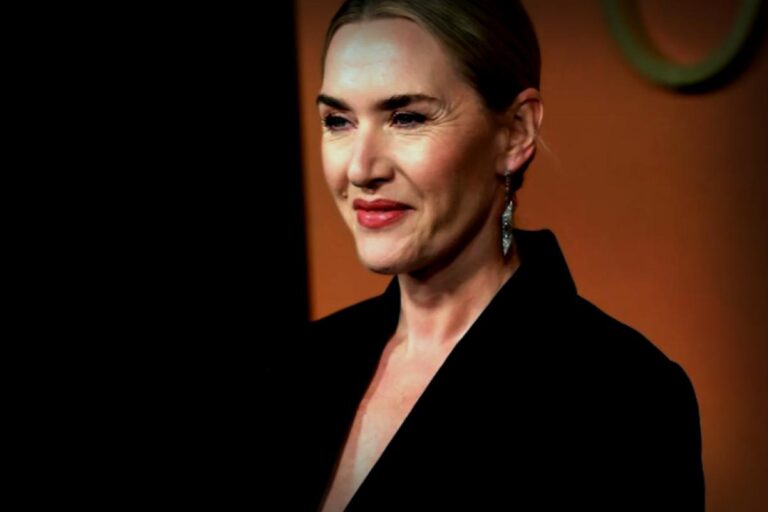It’s a common misconception that addiction is far removed from the world of green smoothies, meditation sessions, and those positive affirmations plastered on our mirrors. But here’s the kicker: the wellness culture isn’t as safe as it sounds. For many, especially women striving for that perfect state of health, it can open the door to a level of dependence—whether that’s on pills, a nightly glass of wine, energy-boosting stimulants, or even what we might think of as ‘healthy’ behaviors.
The constant urge to be flawless, detoxify, and seek ”more” can take a sinister turn when life tries to push us off track.
The core issue often lurks beneath all those layers of careful choices and the desire for perfection. For instance, a woman may thoughtfully choose every item she consumes but find it hard to resist a third glass of organic pinot noir on a weekday evening.
Or perhaps she might rely on adaptogen tinctures but secretly depends on Adderall just to keep up with everything—her job, her kids, and those early morning workouts. These are not just stereotypes; they’re real stories of women who are smart, caring, and trying to navigate through life.

When Wellness Hides the Reality
There’s a problem with how wellness is marketed—it promises calm, energy, glowing skin, and a strong sense of self, but often forgets to mention how to deal with grief, trauma, and the daily grind of life. The reality is, women drawn to this beauty of clean living often find themselves combatting the feeling of being out of control underneath all that success.
This pursuit can indeed bring about transformation—but when control becomes the shield and perfection the addiction, it only paves the way for even darker dependencies.
A drink to unwind at the end of the day may escalate to finishing a bottle. Taking Xanax to manage everyday anxiety morphs into a daily habit. Even constantly hitting the gym and restricting what we eat may turn toxic. The culture around us may champion discipline, but let’s not forget that addiction doesn’t care one bit how healthy or organic your choices are.
This is why seeking the right kind of help is crucial. Not everyone fits the same mold on the road to recovery, especially when your life appears built around wellness. Some women blossom in environments that focus on nurturing, acknowledging both the appeal of clean living and the toll it takes.
That’s where programs tailored just for women come in—spaces designed exclusively for them, understanding the specific struggles, personal health histories, and often the quiet shame that comes with such battles. These aren’t typical rehab hubs; they’re serene spots where you won’t have to explain your commitment to green juice or why you’re hesitant to share your struggle with anyone.
Healing Begins Within
Recovery is not merely about halting a behavior; it’s about cultivating a nervous system that can sustain itself without dulling the senses. For many women invested in wellness, high-stress levels are a part of life, often driven by cortisol spikes, performance pressure, and those internal expectations. This ongoing stress can wear down even the most resilient bodies and sharpest intellects.

That’s why true healing kicks off by returning to the body instead of escaping from it. This could mean less obsession with biohacking and prioritizing restorative rest. It may shift your high-intensity workouts to simple, tech-free walks instead. Recovery symbolizes rediscovering a sense of safety in the stillness, especially since addiction feeds off moments of unbearable quiet.
Tools like somatic therapy, EMDR, and guided breathwork can carefully help rebuild that internal framework. The journey of recovery won’t be quick, but every step taken is worthwhile. It’s about embracing humanity without having to hold onto anything as a vice. Let the pressure to be “okay” fade as you start treating your nervous system as a fragile, living entity instead of merely a project.
If you’re just looking to get through the day without feeling the need to reach for something that dulls your edges, that’s completely okay. Take baby steps—hydrate properly, bask in sun exposure, make eye contact with others—each little movement counts.
The Shame Spiral We Need to Discuss
Years of tying your identity to wellness can make admitting to addiction feel like a deep betrayal. There’s that heavy weight called shame, embarrassing feelings, and some moments even near-grieving your former self. Society doesn’t quite help with its outdated views on what addiction truly resembles. Connecting the image of a successful woman with being labeled as an “alcoholic” or “addict’’—especially when it’s your reflection—is tough.
But spiraling into shame is deceiving. Addiction could care less if you’ve got the trendiest kitchen gadgets or an immaculate home. Holding onto shame simply keeps us hidden, isolated, and increasingly reliant. The truth is, you can rewrite your narrative without needing to sanitize it first. You can be the gal who once sipped on mushrooms during sound baths yet finds herself in need of support moving away from benzos. Pain and validity aren’t hierarchical.

How do you kick shame to the curb? Speak up—share it with that one trustworthy person in your life. Use your voice to express burdens. It’s when we articulate the heavy stuff that the walls begin to shift. Remember, you don’t have to pretend to be something else. You are still you, worthy and whole.
A New Start Without Losing Yourself
Choosing recovery doesn’t mean you need to let go of what you love about wellness. Rather, it’s about redefining it. You needn’t swap your eco-friendly lifestyle and wholesome food choices for cold cafeteria trays or monotonous lectures. Give up the fantasy that you can outsmart your pain with supplements or linear solutions.
Think of your healing as a path of expansion, not restriction. You can still focus on what matters to you health-wise, but now it’s grounded—you won’t be frazzled while chasing a version of wellness that’s just too out of reach. You no longer need to treat wellness like it’s a magic fix. Instead, allow it to become a form of deep respect for your being.
For some, it may take a blend of professional help and holistic approaches. Treat yourself to acupuncture, explore art therapy, or try trauma-informed yoga—each can be valuable in your journey. But don’t just stop there; explore further at addictioncenter.com, CasaCapriRecovery.com, or adcare.com for resources tailored to you and your system of beliefs.
You’re okay; just maybe exhausted from living in conflict with yourself. On the other side of this is serenity, and you don’t have to ditch the parts of you that seek to feel good, naturally.
Embracing Your Truth
Facing addiction as wellness-focused individuals is challenging, especially owning that contrast. You can still hold onto your values around clean eating, using organic products, and caring for our planet while also attempting to relinquish something that feels contradictory. Recognizing that paradox doesn’t make you fake—it makes you genuine.
There’s great strength in acknowledging the imperfections while still valuing what’s important in your life. This can often mean adjusting your priorities, altering your daily routines, or shedding some outdated identities. But it certainly doesn’t equate to losing the core of yourself.
This journey isn’t about plummeting off a cliff; it’s about gently reentering your world, laden with compassion, and pressure taken down a notch. You don’t need to wait for your entire life to collapse before making proposed changes—you only have to stop thinking perfection is a requirement for peace.
Release the idea that recovery must be polished—it’s often a beautiful, disheveled process, fully alive. It’s less about morphing into a different version and more about returning to your true essence, filled with steadiness, softness, and openness to joy that isn’t found at the bottom of a bottle.
The Journey Toward Creating a New Path
Living clean and embracing natural health was never meant to be about judgment or preservation of image. While at its best, it provides respect—for the earth, your body, and the scarce chances we have here. Addiction doesn’t erase that privilege. It’s not the end, just a temporary roadblock.
If you find yourself in this struggle, remember—you’re not alone. And if the moment has come for you to come back to who you are, recognizing this: healing isn’t just another fad. It’s a fundamental right. You don’t have to appear flawless to rediscover tranquility; all it requires is starting from your current self—one honest step at a time.





















